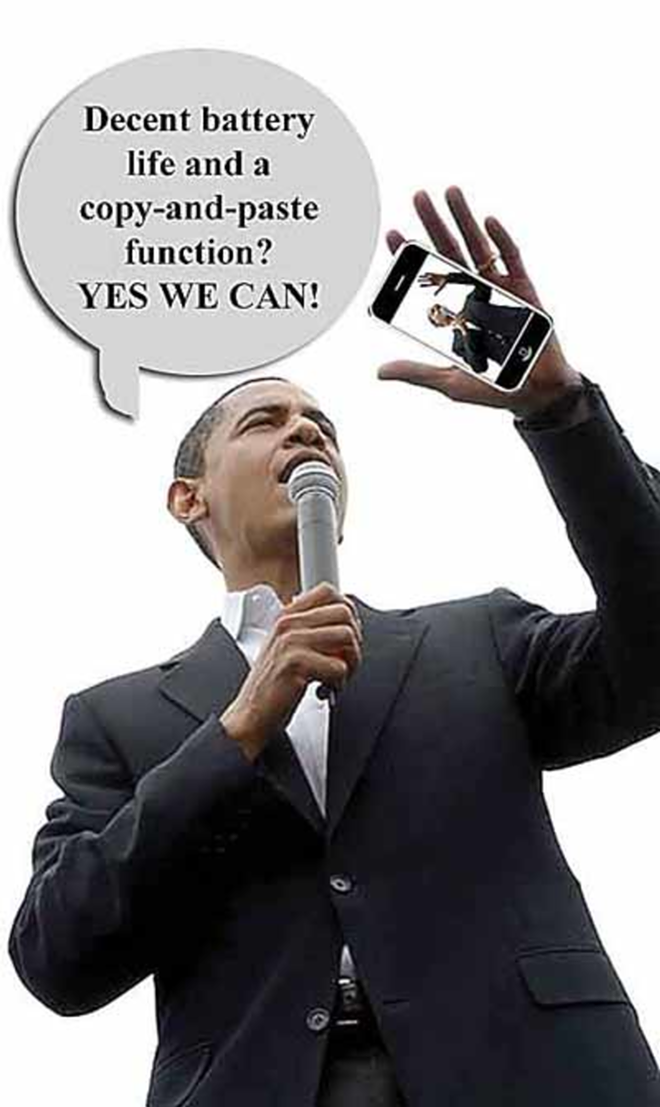Barack Obama will become the 44th president of the United States in about nine weeks.
This means we can reasonably expect all of the world's problems to be solved by May 2009.
That may seem like a long time, but you have to remember — the Obamas are getting a new puppy for their daughters. We all know how much time a new puppy can take up.
Everyone's aware of the marquis problems Obama's likely to tackle: Iraq, Afghanistan, Pakistan, the global financial meltdown, global warming, and the iPhone's piss-poor battery life and spotty 3G network connection.
But there are a couple others that are just as big, though not as well known. Perhaps Obama can take a look after the puppy is White House-trained.
The Democratic Republic of Congo is probably the most violent place on Earth. When you consider how many shitholes our planet hosts, that's really saying something.
The International Rescue Committee estimates that 5.4 million Congolese have lost their lives in a decade of nearly nonstop war — more than any other conflict since World War II.
The warrin' is an offshoot of the 1994 Rwandan genocide and is concentrated near Congo's border with Rwanda. Militias from the Hutu tribe responsible for the Rwandan genocide simply hopped the border and continued their killfest. Rwanda's government, controlled by ethnic Tutsis, supports a Tutsi rebel general in Congo who's fighting the Hutus.
In the meantime, all sides are massacring civilians at an astonishing pace. Since late summer, violence has accelerated. An estimated 200,000 Congolese civilians have been forced from their homes in recent weeks. And "forced from their homes" doesn't means they're visiting relatives or chilling at the La Quinta. They're wandering the fucking jungle. It's a slow death sentence.
The U.S. can help in two ways. First, we could lead an effort to bolster the UN's puny, 6,000-man peacekeeping force in eastern Congo. Secondly, the U.S. could bully Congolese and Rwandan leaders to make peace with various rebel groups. Congo watcher and former international aid exec Anthony Gambino believes many of the Hutu fighters would lay down their arms and return home to Rwanda if they believed they'd be safe. An Obama Administration could catalyze that process. Heck, so could a Bush Administration, but thus far it hasn't tried.
Another other big problem Obama should turn his attention to is Somalia.
Like in Congo, a smart, sane, humane, generous American policy has the potential to save millions of lives. Unlike in Congo, it's American attention, rather than inattention, that's fueling the misery.
In late 2006, U.S. and Ethiopian forces invaded Somalia. The division of labor was similar to our invasion of Afghanistan in 2001. We supplied money, weapons, logistical support, and the occasional special ops mission.
Our alleged goal was to remove from power Somali Islamists who, for all of their fundamentalist awfulness, had managed to provide southern Somalia with a semblance of order for the first time since 1991.
We and Ethiopia removed the Islamists from power, replacing them with, um, nothing.
In the meantime, the Islamists morphed into a relentless guerilla army. The subsequent fighting has left countless dead and forced a million Somalis from their homes. Nearly half of all Somalis now survive on international food aid.
If that doesn't faze you, consider this: the war has battle-trained and radicalized thousands of young Somali men. An invasion allegedly intended to thwart militant Islam has provided al-Qaeda with a giant new talent pool.
Ethiopian forces are likely to withdraw in the coming months. When they do, the Islamists probably will take over. Only this time, they'll be stronger than they were when we invaded.
We can help the same way we can help in Congo, by leading the formation of and funding an international peacekeeping force of at least 8,000 people.
If we'd commit to spend half as much money or energy on development aid to Somalia as we spend on weapons for Ethiopia, there's at least a chance Somalia could emerge from a two decade-long stroll down Anarchy Lane.


